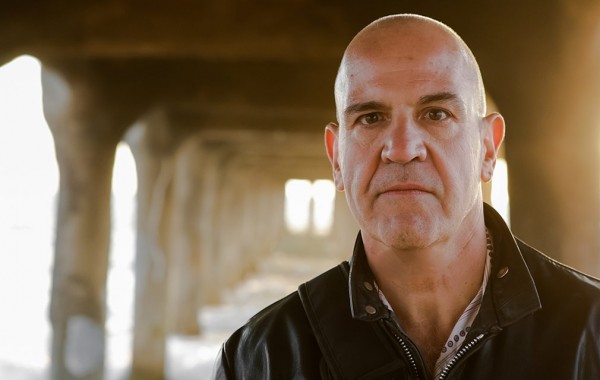
Jose Enrique Pardo ’75
Making a documentary began as a personal quest for Jose Enrique Pardo ’75 — but the film Cubamerican has also become a cathartic experience for Pardo’s audiences.
“My father’s death prompted me to look back at my life,” he said. In September of 1961, at the age of 7, Pardo fled Communist Cuba with his dad to start a new life in the United States. They were forced to leave behind Pardo’s mom because of a paperwork snafu, but she was able to join them a year later in Union City, N.J.
“I experienced a profound feeling of gratitude to him for bringing me to the United States, where I have lived free to express myself and choose my own path in life,” he said.
Pardo’s father died in 2006. After a period of grieving, Pardo started working on the documentary in 2008 as a tribute to his dad, who “basically represented everything that was Cuban to me,” he said. “I decided that I was going to reclaim my Cubanness — in Spanish, we call it Cubania.”
Pardo and his cinematographer traveled the country, interviewing an impressive cast of Cuban-Americans — including actor Andy Garcia, Yale professor Carlos Eire, and prima ballerinas Lorna Feijoo and Lorena Feijoo — “to investigate their journeys and integrate them with mine.” The documentary Cubamerican is the result; it is written, produced, and directed by Pardo.
“We were able to touch hearts. And that’s what we’ve lived for, myself and the whole team.”
The most heart-wrenching scenes show Pardo’s interviews with the “Peter Pan kids.” Now adults, they were some of the 14,000 Cuban children sent from their homeland to various parts of the United States by themselves in the 1960s. “Compared to the trauma of the family separations that the Castro regime has created, mine pales in comparison,” Pardo said.
The history of the Castro regime serves as the film’s backdrop, which not only informed but also shocked some. “I’ve had young Cuban-Americans say to me, ‘We didn’t know any of this; we weren’t taught this,’” Pardo explained. “Because [they’re taught] revisionist history [in Cuba]. And that, to me, was a revelation.”
Since its release in June of 2013, Cubamerican has sold out shows in cities across the country, including Los Angeles, Miami, and New York. It has received standing ovations and evoked emotional reactions, which Pardo has especially witnessed during the Q&A sessions. “I had women who started to cry and couldn’t even ask me a question,” he said. “We were able to touch hearts. And that’s what we’ve lived for, myself and the whole team.” Pardo has described the collective energy in the audience as a “mass catharsis” for Cuban-Americans.
But, the film is not just for Cuban-Americans. “It’s a story about immigration, displacement, people who have lost their country, and those who have left because they no longer agree with the regime and can’t be free in their own country,” Pardo explained. After one show, a group of Iranian-Americans approached him and said, “This is our story, too.” And in March, Pardo held a screening at the Embassy of the Czech Republic in Washington, D.C., because “they have their own history with communism,” he explained.
The emotional rewards continue for Pardo as the film continues to be screened across the country. In the fall, he will return to show the film at Colgate where, as a student, he was an English and political science major as well as a member of the Colgate Thirteen. After graduating in three years, he attended Rutgers School of Law, where Pardo found writing as a way to escape the rigors of his studies. He started by dabbling in poetry and has since completed three novels.
Pardo spent several years teaching law, and at one point was supervising third-year Seton Hall University students handling cases for impoverished Hispanics. He even argued a case in front of the Supreme Court of New Jersey. His later experience working for the large real estate firm Tishman Speyer inspired Pardo to start his own consulting company when he moved to California in 1999. But, the desire to write was still present, so he studied screenplay writing at UCLA and made two short theatrical films.
Pardo has several ideas for new projects, but for now, he is devoting his full attention to Cubamerican. He intends it to be a legacy for his two daughters and descendants. “The ultimate value of the film,” Pardo said, “is that it will become an archival piece and a way to reacquaint future generations with the plight that brought them here in the first place.”
— Aleta Mayne, Photo by Adrianne Ryan






